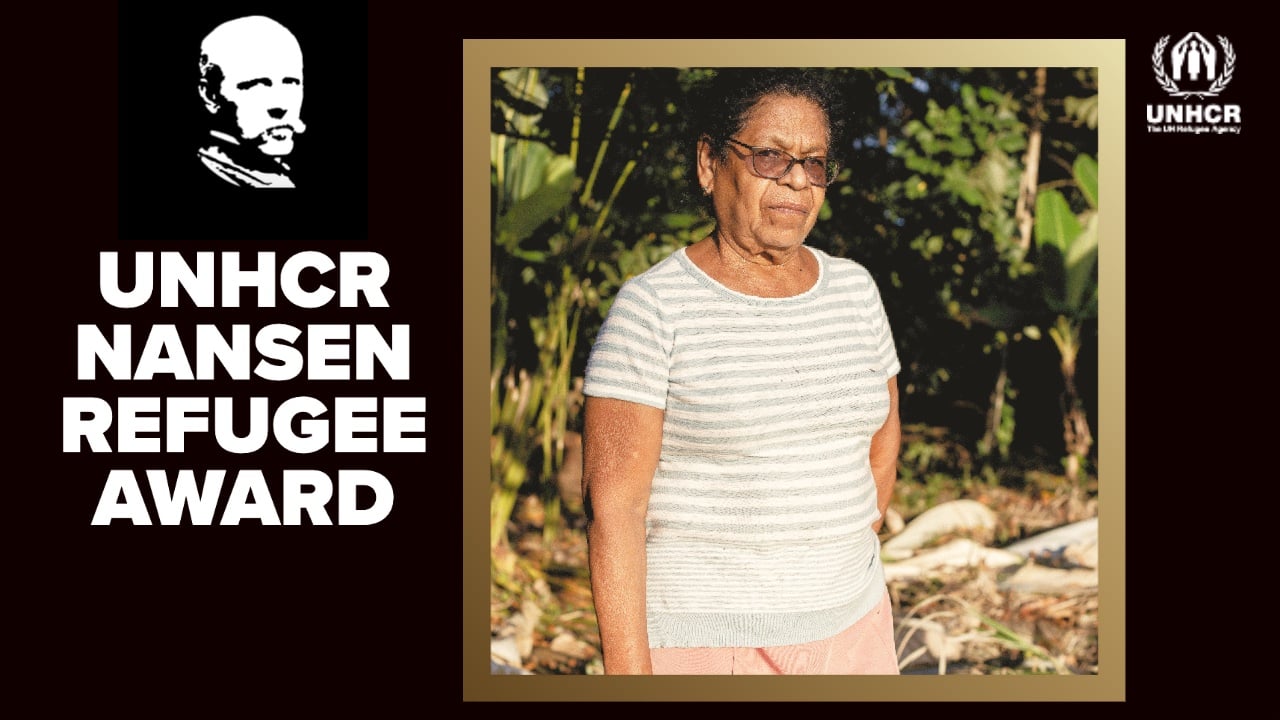Seed funding helps Colombian hairdresser set up ice cream business in Venezuela
Seed funding helps Colombian hairdresser set up ice cream business in Venezuela

SAN CRISTOBAL, Venezuela, June 7 (UNHCR) - Lorena* has a head for business and a strong work ethic and the combination is helping her to become self-sufficient in western Venezuela. Participation in a UNHCR income-generation scheme has also proved vital for her and dozens of other Colombian refugees living in border states.
In her native Colombia, her success may have worked against the mother of three, but here in the capital of mountainous Táchira state her small tailoring and ice cream businesses are providing Lorena with a livelihood in a safe environment.
"With the money I get from selling ice creams, I can now feed my children twice a day," said the middle aged woman, who applied for a UNHCR loan after the Venezuelan government granted refugee status to her and her husband, as well as their daughter and two grandchildren, two years ago.
Before fleeing to Venezuela in 2007, Lorena ran a thriving hairdressing salon in Bucaramanga, capital of the department of Santander, which borders Táchira. But one night a group of armed men broke into the shop and stole everything.
After Lorena and her husband went to the police to report the theft, they started receiving anonymous threats of violence if they did not drop their complaint. "I did not feel safe anymore in my own country," she said.
"For a while, we moved to different locations but these people always tracked us down. So that is why I am here," she explained. "Of course we miss our country, but we had no choice."
Lorena and her family felt lost after crossing into Venezuela, but happy to be safe. A kindly local woman let them stay in her house for a few days and told them how to get in touch with UNHCR officials in San Cristobal and how to apply for asylum. "Local people, in general, are welcoming and tolerant of the Colombians who arrive here," Lorena noted.
She and her family received refugee status after about a year, by which time she had also applied for and received a low-interest loan under the micro-credit scheme run by UNHCR.
The aim of the programme is to promote self-sufficiency among refugees and asylum-seekers in Venezuelan border states such as Zulia, Táchira and Apure.
Last year, some US$250,000 was handed out to 148 registered refugees or asylum-seekers who sought seed funding to set up businesses in areas such as agriculture, fisheries, manufacturing and commerce. The recipients will also be eligible to take part in courses on business management, accounting, agriculture and other areas, providing them with enhanced skills.
Venezuela has granted refugee status to 2,700 people under a national asylum law adopted almost a decade ago. But UNHCR estimates that more than 200,000 Colombians who have sought shelter in Venezuela are eligible to apply for refugee status.
* Name changed for protection reasons
By Francesca Fontanini in San Cristobal, Venezuela








